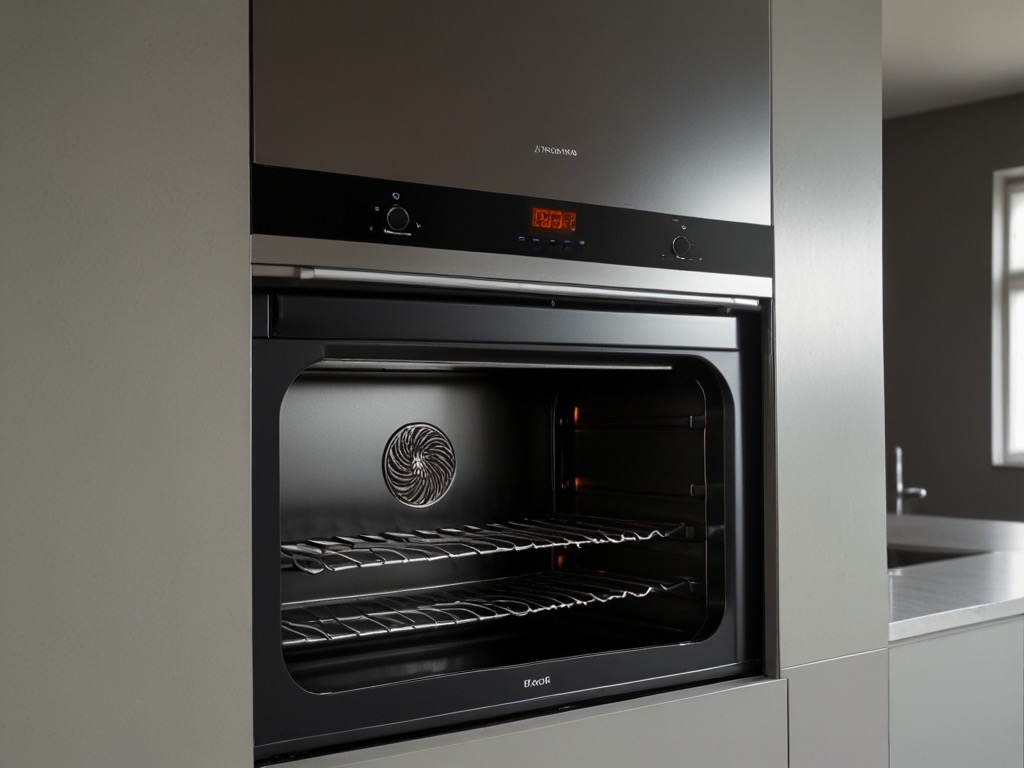Ovens are an essential appliance in any kitchen, facilitating everything from daily meals to elaborate feasts. However, like any appliance, ovens are susceptible to wear and tear, with corrosion being a common issue that can compromise their functionality and lifespan. Corrosion, often caused by exposure to moisture, heat, and food residues, can affect various metal parts of the oven, including the racks, interior surfaces, and heating elements. Preventing corrosion is crucial for maintaining the oven’s efficiency and safety. This article outlines effective strategies to prevent corrosion on the metal parts of your oven and keep it in optimal condition.
Understanding Corrosion in Ovens
Corrosion is a natural process where metal deteriorates due to chemical reactions with its environment, often resulting in rust. In ovens, this can be accelerated by factors such as:
- Moisture: Water from cooking or cleaning can lead to rust, especially when it remains on metal surfaces for prolonged periods.
- Food Residue: Spills and splatters from acidic or salty foods can corrode metal parts if not promptly cleaned.
- Heat: High temperatures can cause metals to oxidize more quickly, especially when combined with other corrosive agents.
- Chemicals: Some cleaning agents contain harsh chemicals that can damage metal surfaces over time.
⠀
Steps to Prevent Corrosion
⠀
- Regular Cleaning
⠀
Regular cleaning is the most effective way to prevent corrosion. Here’s how to do it properly:
⠀
– Wipe Spills Immediately: After cooking, clean up any spills or splatters as soon as possible to prevent them from drying and becoming more difficult to remove. Use a damp cloth or sponge for this task.
– Use Gentle Cleaners: Avoid using abrasive cleaners or scrubbers that can scratch metal surfaces. Instead, use mild dish soap and warm water. For tougher stains, a mixture of baking soda and water can be effective.
– Dry Thoroughly: After cleaning, always dry the oven completely. Moisture left on metal parts is a primary cause of rust and corrosion. Use a soft, dry cloth to wipe down the interior and metal components.
⠀
- Apply Protective Coatings
⠀
Protective coatings can provide a barrier against moisture and corrosive substances:
⠀
– Oven-Safe Grease: Apply a thin layer of oven-safe grease or high-temperature oil to metal parts, like the racks and door hinges. This can help prevent rust and keep moving parts lubricated.
– Specialized Coatings: There are commercially available anti-corrosion sprays and coatings designed for metal surfaces in high-temperature environments. Follow the manufacturer’s instructions for application.
- Maintain Proper Ventilation
Good ventilation helps reduce moisture buildup inside the oven, which can lead to corrosion:
– Use the Ventilation Fan: When cooking, especially if there’s a lot of steam, turn on the oven’s ventilation fan to help remove moisture from the interior.
– Leave the Door Open After Cooking: Allowing the oven door to stay open for a few minutes after cooking can help dissipate any remaining moisture.
⠀
- Inspect and Replace Seals
⠀
The seals around the oven door are crucial for keeping moisture out:
⠀
– Inspect Regularly: Check the condition of the door seals regularly for signs of wear or damage.
– Replace When Necessary: If the seals are cracked or not sealing properly, replace them to prevent moisture from seeping into the oven’s interior and causing corrosion.
⠀
- Avoid Using Excessive Water
⠀
When cleaning your oven, avoid using excessive amounts of water:
⠀
– Damp, Not Soaking: Use a damp cloth for cleaning, not a soaking wet one. Excess water can seep into small crevices and lead to rusting.
– Steam Clean Sparingly: If your oven has a steam cleaning feature, use it sparingly and ensure the oven dries completely afterward.
⠀
- Check and Clean Heating Elements
⠀
Heating elements can be prone to corrosion if food residue is allowed to accumulate:
⠀
– Inspect for Residue: Regularly check the heating elements for any food or grease buildup.
– Gentle Cleaning: Clean them with a soft cloth and a mild cleaner. Be careful not to damage the elements.
Long-Term Maintenance Tips
⠀
- Regular Inspections: Periodically inspect the metal parts of your oven for any signs of rust or corrosion. Early detection allows for quick intervention.
- Use Oven Liners: Place liners on the oven racks to catch spills and crumbs, making cleaning easier and protecting the metal surfaces.
- Avoid Aluminum Foil: Don’t line the bottom of your oven with aluminum foil as it can trap heat and cause damage to the interior surfaces and heating elements.
⠀
Despite your best efforts, there may come a time when corrosion is too advanced to handle on your own, or you might notice that your oven isn’t performing as it should. This is when professional help becomes invaluable.
⠀
Home Appliance Service Center offers expert repair and maintenance services to keep your oven in top condition. Our experienced technicians can address corrosion issues, perform thorough cleanings, and replace any damaged parts. We use high-quality parts and proven techniques to ensure your oven runs smoothly and safely.
⠀
Don’t let corrosion ruin your oven. For professional oven maintenance and repair services, contact the Home Appliance Service Center at (619) 928-5000 or visit our website. Our team is dedicated to providing exceptional service and keeping your kitchen appliances in excellent working order.
Contact us
 619-928-5000
619-928-5000  Request Service
Request Service 
